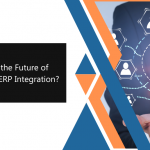
A quick perusal of the web will show that companies who use Ecommerce ERP solutions are faced with a major challenge: how to integrate their ERP implementation with their e-commerce system. Companies who are successful at it definitely have a major advantage. The ideal situation is having automation between both systems, and “being able to bridge the gap between selling online, managing inventory, and processing transactions – ultimately making things easier for employees, and customers,” according to an editorial from business.com.
Since the challenges of e-commerce ERP integration are significant, what are a few ways that companies can ensure their best chances of success?
First of all, by picking a solution that best meets the needs of the business. That usually centers around giving customers a personalized experience and also making the ordering system on your website easy to use and also is talking to your ERP. “If data can’t easily flow from your E-commerce system to the account management and fulfillment areas of your ERP system, there’s no shortage of opportunities to disappoint.
- Delays in data exchange between your systems can keep purchased products in your warehouse when they should be out the door and on their way.
- A miskeyed manual order transfer might leave a customer wondering why they received an item other than what they paid for.
- Stock count discrepancies between systems can saddle you with the uncomfortable task of informing your customer of a cancelled order”
According to Adam Bluemner writing in findaccountingsoftware.com.
Second, by making the system easy for trading partners to use. “You have to ensure that your external trading partners (in the B2B context) will be able to connect to your ERP system easily. Otherwise, the low connectivity can cause the downtime of production processes,” as stated by Indre Maslinskaite at locatory.com. It goes without saying that the same thing applies to B2C firms who are most highly concerned over fast, accurate and consistent order fulfillment for their online shoppers.
Third, companies who undertake the integration will have to plan for the future and make the system scalable. Jerri Ledford writing in toolbox.it.com puts it this way: “Successful integration of ERP and e-commerce requires a long-term view of the future. What happens if growth increases? What happens if it decreases? What if the rate of increase or decrease is greater than expected?”. Make sure you have a partner like TMC that has IP wrapped around their Ecommerce integrations to multiple platforms like Magento, Shopify, Big Commerce, etc. Each platform is unique and requires specific tools like Microsoft Dynamics integration tools to have a bi-directional integration between the ERP system and the ecommerce site. It’s not a simple plug and play however. Each ecommerce site is unique so will require some writing behind it. Luckily TMC already has prewritten integrations made for their customers to all the major ecommerce platforms available.
An e-commerce ERP integration requires expert services. Please contact us for more information, we are eager to help. Thank you.
{{cta(’52a6f94c-7ea9-4a8d-bf2d-9432e3c12709′)}}





